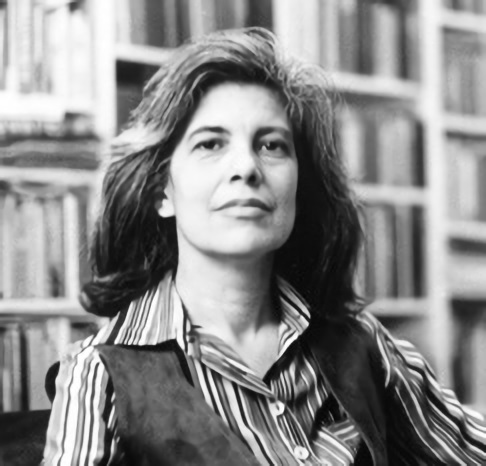publicado em portugal dos pequeninos em 29.8.10 http://portugaldospequeninos.blogspot.com/2010/08/sontag-e-o-codigo.html#links
Susan Sontag Frases famosas
“As únicas respostas interessantes são aquelas que destroem a questão.”
Variante: As únicas respostas interessantes são aquelas que destroem as perguntas.
Frases sobre a realidade de Susan Sontag
Susan Sontag frases e citações
entrevista a Carlos Graieb, publicado em Revista Veja http://veja.abril.com.br/270803/entrevista.html, Edição 1817 . 27 de agosto de 2003
On Photography
Reborn: Journals and Notebooks, 1947-1963
“A coragem é uma virtude moralmente neutra.”
In the matter of courage (a morally neutral virtue)
"At the same time: essays and speeches" - Página 106, de Susan Sontag, Paolo Dilonardo, Anne Jump, David Rieff - Publicado por Farrar, Straus, and Giroux, 2007, ISBN 0-374-10072-1, 9780374100728 - 235 páginas
“Nuca precisei de sonhos para interpretar minha vida, mas da vida para interpretar meus sonhos.”
Variante: Eu não estava querendo que meus sonhos interpretassem minha vida, mas antes que minha vida interpretasse meus sonhos.
On Photography
On Photography
On Photography
Susan Sontag: Frases em inglês
Fonte: Reborn: Journals and Notebooks, 1947-1963
Fonte: Reborn: Journals and Notebooks, 1947-1963
Frankfurt Book Fair speech (2003)
Contexto: To have access to literature, world literature, was to escape the prison of national vanity, of philistinism, of compulsory provincialism, of inane schooling, of imperfect destinies and bad luck. Literature was the passport to enter a larger life; that is, the zone of freedom.
Literature was freedom. Especially in a time in which the values of reading and inwardness are so strenuously challenged, literature is freedom.
Fonte: Reborn: Journals and Notebooks, 1947-1963
“Life is not about significant details, illuminated a flash, fixed forever.
Photographs are.”
Fonte: On Photography
Fonte: As Consciousness is Harnessed to Flesh: Journals and Notebooks, 1964-1980
Fonte: As Consciousness is Harnessed to Flesh: Journals and Notebooks, 1964-1980
Frankfurt Book Fair speech (2003)
Contexto: We are told we must choose — the old or the new. In fact, we must choose both. What is a life if not a series of negotiations between the old and the new? It seems to me that one should always be seeking to talk oneself out of these stark oppositions.
“Styles change, style doesn't.”
Styles, like everything else, change. Style doesn't. - Linda Ellerbee, Move On: Adventures in the Real World (1991), p. 35 G.P. Putnam's Sons ISBN 0399136231
Misattributed
"Notes on 'Camp'" (1964), note 9, p. 279 http://books.google.com/books?id=e3qgRrVlEH4C&q=%22What+is+most+beautiful+in+virile+men+is+something+feminine+what+is+most+beautiful+in+feminine+women+is+something+masculine%22&pg=PA279#v=onepage; originally published in Partisan Review, Vol. 31 No. 4 http://books.google.com/books?id=qEwqAQAAMAAJ&q=%22What+is+most+beautiful+in+virile+men+is+something+feminine+what+is+most+beautiful+in+feminine+women+is+something+masculine%22&pg=PA519#v=onepage, ( Fall 1964 http://www.bu.edu/partisanreview/books/PR1964V31N4/HTML/#519/z)
Against Interpretation and Other Essays (1966)
Partisan Review (Winter 1967), p. 57
“It is not suffering as such that is most deeply feared but suffering that degrades.”
AIDS and Its Metaphors, (1989), ch. 4, p. 125, Farrar, Straus and Giroux ISBN 0-312-42013-7
AIDS and Its Metaphors was later published in combination with Illness As Metaphor. This combined edition is the one referenced here.
Regarding the Torture of Others (2004)
Regarding the Torture of Others (2004)
